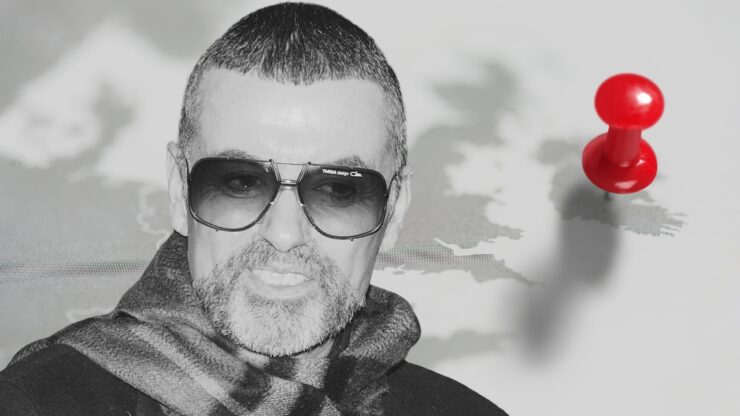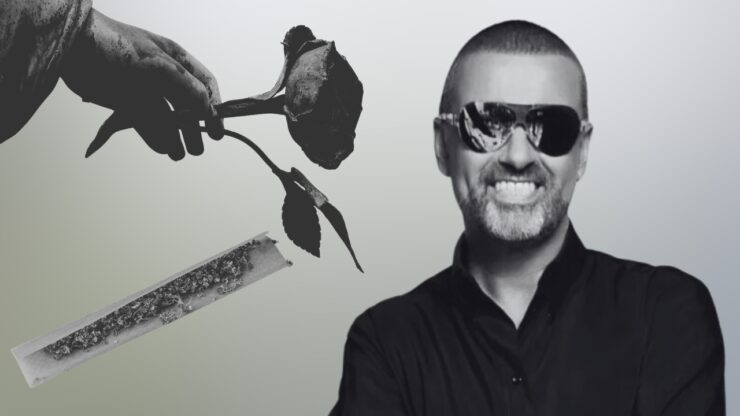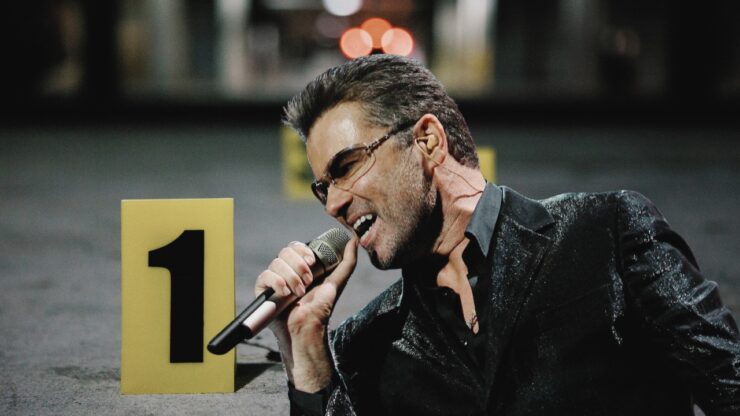George Michael, the iconic British singer-songwriter, left an indelible mark on the music industry with his powerful voice and memorable hits. Rising to fame in the 1980s as part of Wham! before his successful solo career, Michael’s talent and charisma captivated audiences worldwide.
His sudden death on Christmas Day 2016 sent shockwaves through the entertainment world and left fans mourning the loss of a true musical legend.
Throughout his life, Michael faced numerous personal challenges and public controversies.
Despite these obstacles, he remained committed to his craft and used his platform for philanthropic endeavors. His generosity and charitable work often went unnoticed during his lifetime, but those close to him remember a man dedicated to helping others and making a positive impact on the world.
What Caused George Michael’s Passing?

George Michael, the iconic pop star, died of natural causes at the age of 53. Initial investigations into his death were inconclusive, leading to speculation and uncertainty. However, after extensive testing and examination, medical experts determined the specific factors that contributed to his untimely demise.
The primary causes of Michael’s death were:
- Dilated cardiomyopathy
- Myocarditis
- Fatty liver
Dilated cardiomyopathy is a heart condition where the left ventricle becomes enlarged and weakened, impairing its ability to pump blood effectively. This can lead to heart failure if left untreated. Myocarditis, an inflammation of the heart muscle, often results from viral infections and can further compromise cardiac function.
The presence of fatty liver disease in Michael’s case indicates an accumulation of fat in the liver tissue. While commonly associated with excessive alcohol consumption, this condition can also affect non-drinkers and may be linked to factors such as obesity or diabetes.
The combination of these health issues ultimately led to George Michael’s death. Despite initial uncertainty, a thorough medical examination provided clarity on the circumstances surrounding his passing. The coroner’s report confirmed these findings, concluding that no further investigation or inquest was necessary due to the natural causes identified.
Where Did He Pass Away?

George Michael’s life came to an end at his residence in Goring-on-Thames, a quaint village nestled in South Oxfordshire, England. On December 25, 2016, his partner Fadi Fawaz made the tragic discovery, finding the singer unresponsive in bed.
The circumstances surrounding Michael’s death were initially unclear. Fawaz reportedly spent an hour attempting to rouse the singer before contacting emergency services. During the 911 call, he described Michael as “cold” and “blue,” indicating that life-saving efforts were likely futile at that point.
Emergency responders arrived promptly, but their intervention could not alter the outcome. The pop icon had already died of natural causes, leaving behind a legacy of chart-topping hits and cultural impact.
The loss deeply affected Fawaz, who later shared his experience on social media. He expressed the profound shock of finding his partner lifeless on Christmas morning, a stark contrast to the festive atmosphere typically associated with the holiday.
This unexpected event marked the end of George Michael’s remarkable 53-year journey, leaving fans worldwide mourning the loss of a musical legend. His passing in the tranquil setting of his Goring-on-Thames home added a poignant note to the story of his life and career.
George Michael’s Age at Death
George Michael passed away at 53. The renowned singer-songwriter’s life came to an unexpected end on Christmas Day in 2016. His untimely death shocked fans worldwide, cutting short a remarkable career in music that spanned several decades.
Final Words and Reflections
George Michael’s last recorded words came from a documentary released after his passing. In this film, he spoke candidly about his life experiences and personal struggles. Michael reflected on the profound loss of his first love and his mother, describing these events as deeply traumatic.
The singer expressed feeling victimized by fate, using poetic language to convey his sense of misfortune. He shared insights into a particularly challenging period of his life, marked by intense fear and depression. This dark time was characterized by:
- Constant anxiety about death
- Worry over potential future losses
- An unprecedented level of emotional distress
Michael’s final interview revealed the depth of his emotional pain during these difficult years. He described it as the bleakest period he had ever experienced.
The circumstances surrounding Michael’s last hours remain largely unknown. He is believed to have been alone on Christmas Eve, the night before his death. His partner at the time reported not having seen Michael that evening, having fallen asleep in his car.
While these may not have been his literal last words, they represent some of the final thoughts George Michael shared publicly before his untimely passing.
Speculation Around George Michael’s Untimely Passing

George Michael’s sudden death on December 25, 2016, sparked intense public curiosity and conjecture. His history of substance use contributed to widespread theories about the cause of his demise.
Michael had previously encountered legal troubles related to drug use. In 2008, he was arrested for drug possession and later admitted to heavy marijuana use. A 2010 incident involving driving under the influence resulted in a jail sentence, prompting Michael to seek addiction treatment.
Despite his efforts to overcome substance abuse, rumors persisted about Michael’s potential relapse. A childhood friend suggested that hard drugs had reentered the singer’s life, proposing that an accidental overdose might have been responsible for his death.
Speculation also swirled around Michael’s partner, Fadi Fawaz, despite police statements indicating no suspicious circumstances. This led to media scrutiny of Fawaz, who expressed distress over public vilification.
Some theories even suggested suicide as a possible cause. Controversial tweets from Fawaz’s account later claimed to be the result of hacking, fueled these speculations by alleging multiple prior suicide attempts by Michael.
Throughout this period of uncertainty, Michael’s family maintained a dignified silence, refusing to engage with or comment on the various theories circulating in the media and among fans.
The speculation continued until March 2017, when official findings revealed that George Michael had died of natural causes. The coroner’s report cited dilated cardiomyopathy with myocarditis and fatty liver as the underlying health conditions responsible for his passing.
Key factors contributing to public speculation:
- Michael’s past drug use and legal issues
- Comments from friends and acquaintances
- Rumors about his partner’s involvement
- Unverified social media posts
- Lack of immediate official explanation
This period of uncertainty highlighted the intense public interest in Michael’s life and the challenges of maintaining privacy in the face of celebrity. It also demonstrated how quickly misinformation can spread in the absence of official statements, especially regarding high-profile individuals.
Public Reaction
We’re all gonna miss you #RIPGeorge thanku for making so many of my favorite songs & videos of all time “Too Funky” https://t.co/emcqlMBGXL
— Lady Gaga (@ladygaga) December 27, 2016
The news of George Michael’s death sparked an overwhelming response from fans, celebrities, and local community members. Famous musicians and entertainers expressed their grief and admiration for the late artist. Similarly, the passing of Kim Porter evoked a widespread outpouring of condolences, highlighting the impact she had on those who knew her.
Celebrities reacted on social media, sharing personal memories and tributes.
George Michael’s impact on popular culture was evident in unexpected ways. For instance, his collaboration with James Corden became the inspiration for the widely popular Carpool Karaoke segment.
In his neighborhood, locals gathered to pay their respects:
- Flowers
- Teddy bears
- Cards
- Photographs
These items were left outside his residence as impromptu memorials. Neighbors fondly recalled seeing Michael walking his dogs or attending Christmas Eve services, painting a picture of a down-to-earth celebrity who was an integral part of the community.
Those who worked closely with Michael described him as:
- Kind
- Generous
- Respectful
His treatment of staff members was notably familial, emphasizing his genuine character beyond his public persona.
George Michael’s partner at the time of his death also shared heartfelt words, emphasizing the singer’s kindness and beauty, both inside and out. This personal perspective added to the collective grief felt by millions around the globe.
His Enduring Impact

George Michael’s legacy extends far beyond his musical achievements. The pop icon’s philanthropic efforts, often conducted in secret, left an indelible mark on countless lives. His generous spirit manifested in numerous ways, from substantial charitable donations to personal acts of kindness.
Michael’s altruism took many forms:
- Anonymous financial support for individuals in need
- Free concerts for healthcare workers
- Volunteer work at homeless shelters
- Assistance for struggling mothers
One particularly touching example involves Michael’s anonymous donation to a woman seeking fertility treatment. After learning of her struggles on a talk show, he provided financial support for her IVF procedure. His involvement remained secret until after the successful birth of her daughter.
The singer’s charitable nature was widely praised by his peers. Fellow music legend Elton John highlighted Michael’s generosity and humanity, noting that these acts were performed without seeking publicity.
Michael’s artistic contributions received formal recognition in 2023 with his induction into the Rock and Roll Hall of Fame. This honor solidified his status as a true music industry icon.
Andrew Ridgeley, Michael’s former Wham! bandmate emphasized the significance of this accolade. He described Michael as a “genuine legend” and an “icon of contemporary music,” praising his exceptional vocal and songwriting abilities.

